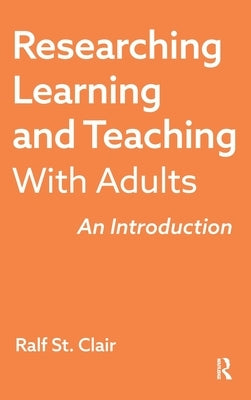Before you leave...
Take 20% off your first order
20% off
Enter the code below at checkout to get 20% off your first order
Discover summer reading lists for all ages & interests!
Find Your Next Read

Designed to help the reader move through an empirical research project, this book describes how they can think like a researcher. Methods and methodologies are presented as pragmatic tools to address research questions. Research into adult learning is different from educational research more broadly as it recognizes and applies the power of narrative and experience. Adult learning is a localized and highly diverse endeavor, and inevitably reflects the life experiences and identity of those involved, making their stories essential. There is a fundamental link between adult learning and the lifeworld of those who are involved in that learning. Whether we are considering a community project supporting adults to tell their immigration stories in a new language, a university instructor encouraging students to think about the assumptions behind the economics curriculum, a group working to re-establish an Indigenous language in a community, or a corporate trainer delivering anti-harassment sessions, the vast majority of education for adults does not fit the taken for granted assumptions of school-centered educational research. One implication is the need for researchers in adult learning to apply the tools differently.The book is organized in four parts. A satisfying research project has coherence across the various parts (research question, methodology, methods, claim to knowledge) and the parts of the book reflect these four areas. Part 1 is about learning to think like a researcher, including ethical guidelines and how to work out the details of a research question. Part 2 discusses methods in a concrete way, to give readers a sense of what the activity of researching looks like. This book looks at a range of qualitative approaches but does not shy away from research with numbers as a way to generate knowledge. Part 3 discusses methodologies for connecting the data generated by methods to findings. Part 4 deals with communicating findings, and also looks at research proposals. A glossary helps readers encountering new terminology, and appendices include a sample research proposal and a sample consent form, as well as resources to learn more about the topic.
Thanks for subscribing!
This email has been registered!
Take 20% off your first order
Enter the code below at checkout to get 20% off your first order